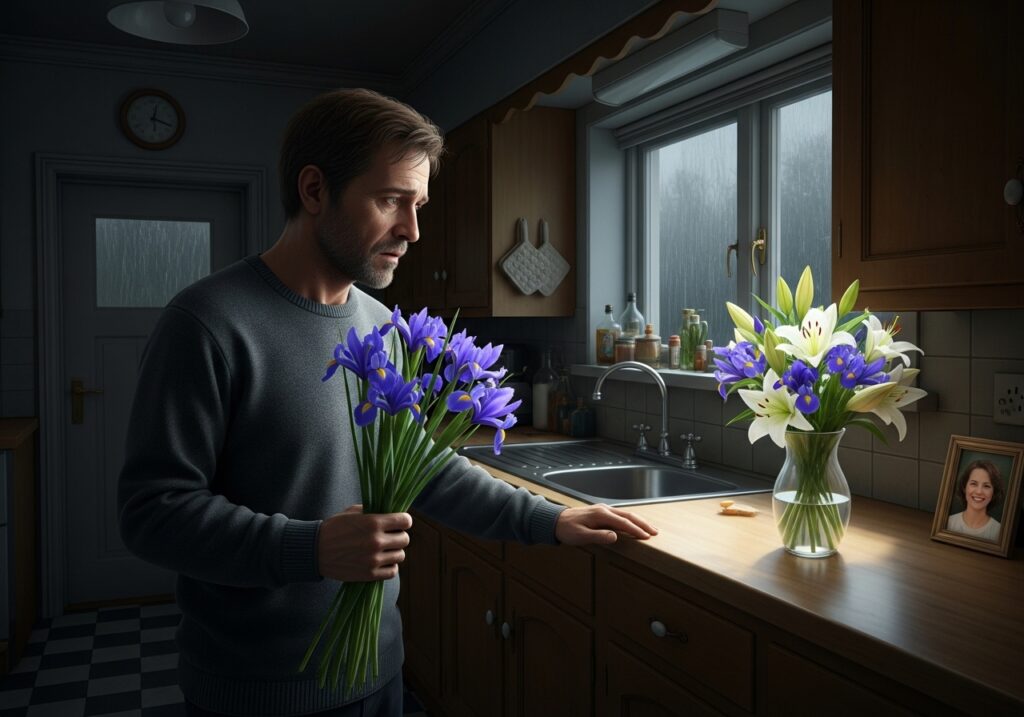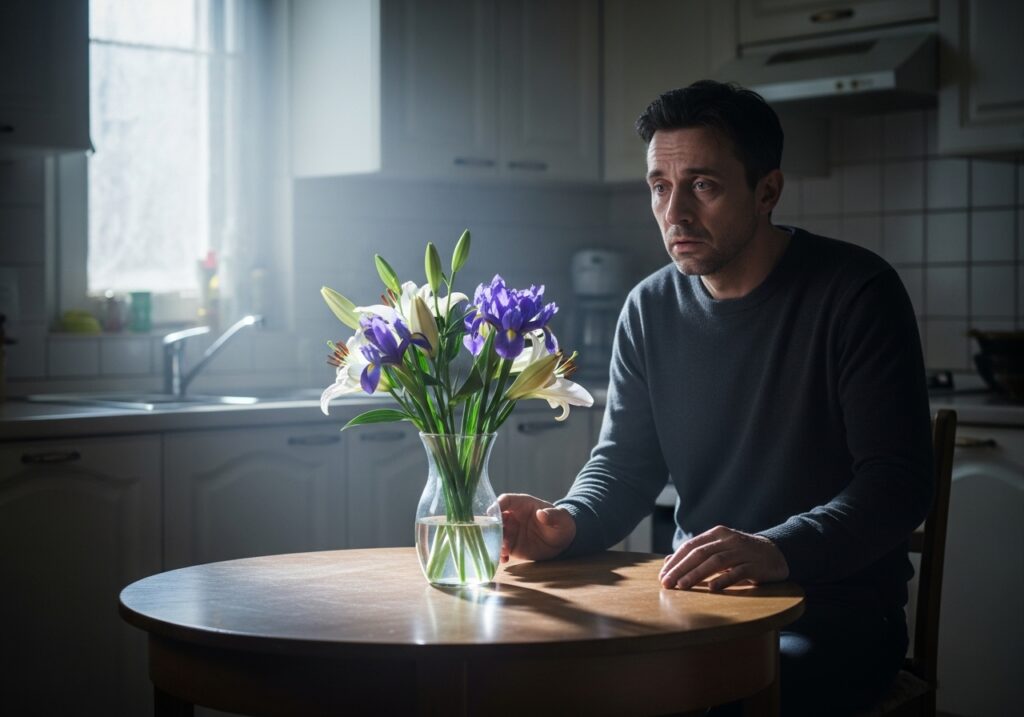Five years had passed since Winter died. And still, Ben couldn’t walk past the kitchen without feeling her absence. The house was quieter now—too quiet. His daughter Eliza, once full of questions and laughter, had grown into a guarded teenager. They lived together, but grief had built walls between them.
Every year, on the anniversary of Winter’s death, Ben followed the same ritual. He’d visit the cemetery, place a bouquet of white roses—her favorite—on her grave, and whisper apologies he’d never spoken aloud. This year was no different. He circled the date on the calendar, bought the roses, and drove to the cemetery with a heavy heart.
“I miss you, Winter,” he said, kneeling beside her headstone. “I still don’t know how to fix what I broke.”
The argument they’d had the night she died still haunted him. Harsh words. Regret. Silence. Then the accident. He’d never told Eliza the truth. He couldn’t bear to.
But when Ben returned home, something was wrong.
The kitchen smelled faintly of roses. On the table sat a vase—filled with the exact bouquet he’d left at Winter’s grave just hours earlier. Same wrapping. Same florist’s tag. Same arrangement.
He froze. Was he losing his mind?
“Eliza?” he called.
She came downstairs, calm and unreadable. “Yes?”
“Did you… bring these flowers?”
She shook her head. “No. I haven’t touched anything.”
They drove back to the cemetery. The grave was bare. No roses. No trace of the bouquet.
Back home, Ben noticed something tucked beneath the vase—a folded note. The handwriting was unmistakable. Winter’s.

“I know the truth, and I forgive you. But it’s time for you to face what you’ve hidden.”
Ben’s knees buckled. He sat down, heart racing. The note couldn’t be real. But it was.
He turned to Eliza, trembling. “I need to tell you something.”
She listened quietly as he confessed. The fight. The guilt. The silence. He expected her to cry, to scream, to walk away.
Instead, she nodded.
“I know,” she said softly. “I found Mom’s diary last year. I read everything.”
Ben stared at her. “Then… the flowers?”
“I needed you to say it out loud,” she replied. “To stop pretending. To let me in.”
The vase of roses wasn’t a haunting—it was a reckoning. Eliza had recreated the bouquet, forged the note, and staged the moment to break the silence that had suffocated them both.
Ben wept. Not just for Winter, but for the years lost in emotional exile. Eliza didn’t flinch. She sat beside him, her hand resting gently on his.
“I don’t need perfect,” she said. “I need honest.”
That night, the house felt different. Still quiet—but no longer hollow. The roses, once a symbol of mourning, had become a bridge. Between past and present. Between father and daughter.
Forgiveness didn’t come all at once. But truth had cracked the door open. And in that fragile space, love began to return.



